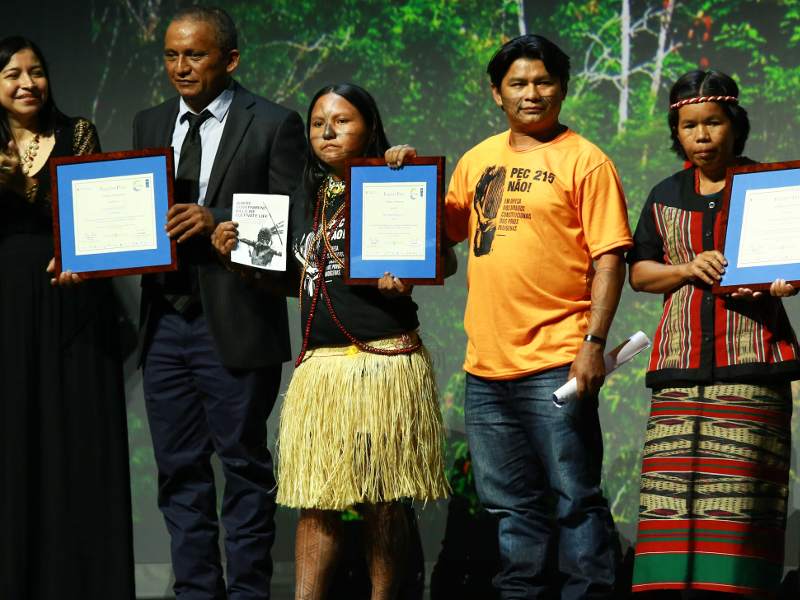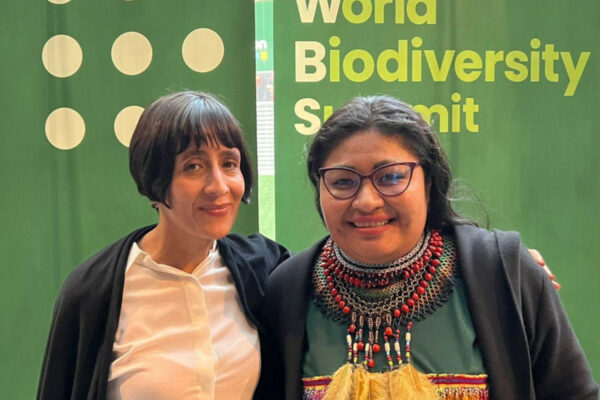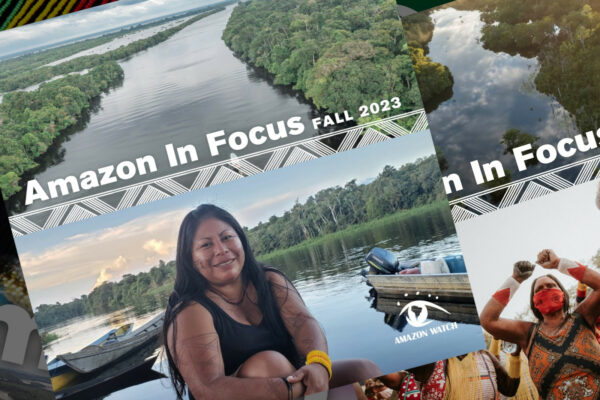Among these voices were leaders from Brazil’s Munduruku people, hailing from the Amazon’s vast Tapajós River basin. Maria Leusa and Rozeninho Munduruku traveled from the Amazon to Paris to receive the 2015 Equator Prize, marking the greatest international recognition to date of their people’s unwavering struggle.
“We’ve come to the COP to bring international visibility and gather support for our struggle for our rights, our lands, and our rivers,” asserted Maria Leusa before a packed assembly, alongside legendary Kayapó Chief Raoni. In addition to the Equator Prize ceremony, where the Munduruku Ipereg Ayu Movement was honored among 21 global movements that strive for indigenous rights and environmental protection, Maria Leusa and Rozeninho brought their message to a diversity of forums, energizing audiences across Paris.
They also came to condemn the handful of powerful European corporate interests profiteering from Brazil’s disastrous dam boom, such as Germany’s Siemens and energy giants EDF and ENGIE (previously known as GDF Suez), both headquartered in Paris. “While here, we must also denounce the European companies who are responsible for supporting projects of destruction in the Amazon,” asserted Rozeninho.
Speaking before the “Rights of Nature” Tribunal, Maria Leusa echoed the sentiments of Antonia Melo of the Xingu Alive Forever Movement, who charged the Brazilian government with ecocide and the cultural genocide of indigenous peoples over the construction of the Belo Monte dam. “I consider our government to be an assassin,” said Maria Leusa. “It assassinates our rights and territories with dams, calling this development. [The government] needs to be punished severely, along with the Brazilian and European companies who are investing in projects of destruction.”
Throughout their time in Paris, the leaders resoundingly called for social and environmental justice and the broad recognition of indigenous rights as an essential solution to climate change. “We indigenous people have predicted what will happen to our home if this cruel model continues,” said Rozeninho. “We have witnessed the destruction [of the Belo Monte dam] and understand what will come to our river and our lives if the government is permitted to proceed with its plans. And these plans do not only threaten my people – they threaten all of us.”





















